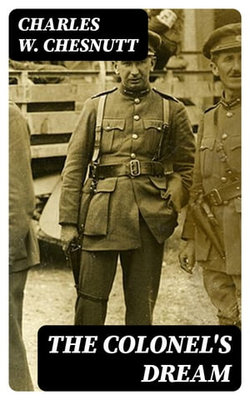In 'The Colonel's Dream', Charles W. Chesnutt intricately weaves a narrative that explores the post-Reconstruction South through the eyes of Colonel French, a man attempting to breathe progressive values into his old, sleepy Southern town. The novel deftly combines social realism with an underlying allegorical structure, providing a piercing examination of the era's racial and economic complexities. Chesnutt's literary style is erudite yet accessible, rich with the dialect and mores of the time, placing 'The Colonel's Dream' firmly within the canon of early 20th-century African American literature alongside contemporaries such as W.E.B Du Bois and Booker T. Washington, while resonating with the historical focus of earlier works like Stowe's 'Uncle Tom's Cabin'. Charles W. Chesnutt stands as a pioneering figure in American literature, not only for his African American heritage but also for his bold engagement with the racially charged climate of his era. His personal experiences as a mixed-race individual who could pass for white invariably shaped his perspectives and gave rise to a body of work that dissected the nuanced stratifications of race and society. 'The Colonel's Dream' emerges from Chesnutt's deep comprehension of racial dynamics and his hope for a more equitable South, reflecting his broader literary endeavors to advocate for social change and challenge the status quo. Readers will find 'The Colonel's Dream' to be a potent literary experience that renders an insightful dissection of the American South's troubled legacy, whilst envisioning a future of reform and reconciliation. This novel is highly recommended for those who appreciate historical context delivered with narrative finesse, as well as scholars and enthusiasts of African American literature and history. In understanding Chesnutt's vision, one also gains a deeper appreciation for the ongoing dialogue about race and identity in America, a testament to the enduring relevance of Chesnutt's work in today's cultural landscape.



Share This eBook: